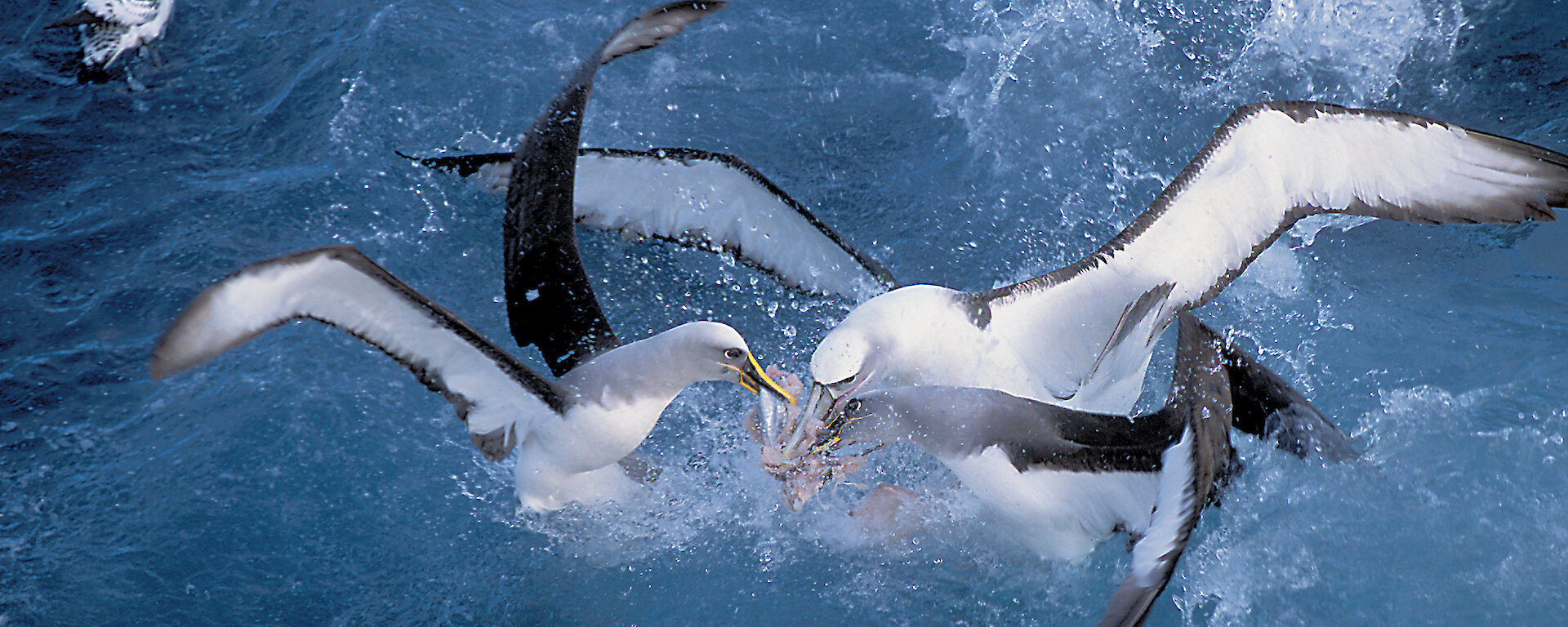Whales, seals, penguins and seabirds face a number of threats to their long-term viability including:
- oceanic and environmental changes on the feeding grounds
- environmental changes at breeding sites
- habitat degradation
- direct and indirect interactions with commercial fisheries
- other human activities causing disturbance or interference
The effects of past over-exploitation of seals, penguins and whales also have implications for the current conservation status of these groups. Some species appear to show little evidence of recovery. In contrast, some species are recovering at rapid but variable rates and their recovery may have significant effects on the marine and terrestrial ecosystems of the region.
Our research informs conservation and management options for Antarctic wildlife. It focuses on the status, population biology and ecology of whales, seals and seabirds and the threats these populations face.
Our research priorities are determined by national initiatives such as the species recovery plan process and bioregional protected area networks. Whale research supports Australia’s role within the Southern Ocean Research Partnership (SORP), which undertakes conservation management research on Southern Ocean whales for the International Whaling Commission.


